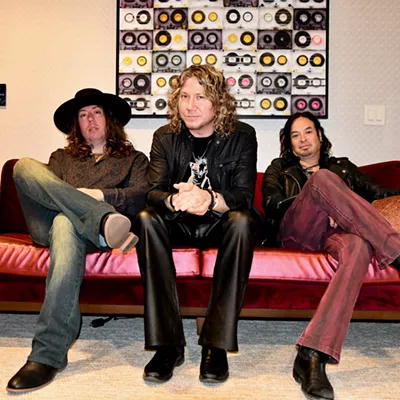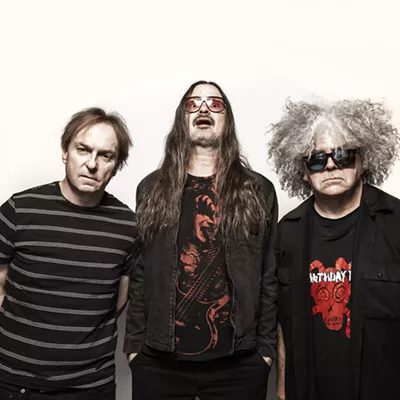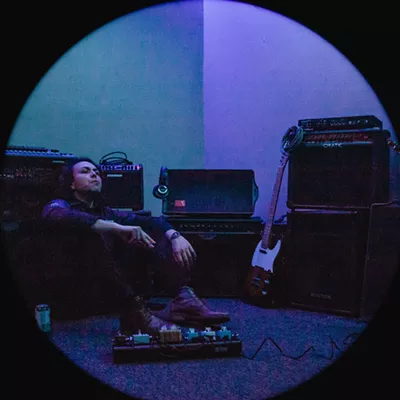"Hey, you can either lay down and die or you can try to create your own reality," says David Sherman. "We take the latter approach, that challenging works matter and they need to be shown here and now in Tucson."
Along with his partner, Rebecca Barten, Sherman owns and operates the local "micro-cinema" Exploded View: a small cubic space in downtown that is an ever rarer haven for experimental (read: actual) art. Though the couple hosts music and other mediums as well, their main passion has always been film.
"We view cinema as the cultivation of a physical community that experiences film as an event in real time, not just a visual product to be consumed in isolation on someone's laptop," Sherman says. "There is no money in it, so why not just investigate and celebrate the human experience through radical film and the sound arts."
Barten and Sherman began their curatorial project almost 20 years ago in San Francisco, as Total Mobile Home microCinema, in a basement under their railroad flat. While that city may have offered more of a paradigm for counter-cultural art, relocating their endeavor to the Old Pueblo has its own benefits.
"One of the things about Tucson that is so unique to what we are doing, is that Tucson doesn't have much of an experimental media history. This cuts both ways in that there [is] not an immediate audience for what we are doing, but rather through engaging the different music, intellectual and visual arts scenes here, [it] has enabled Exploded View to develop a pretty diverse audience," Sherman says.
Diversity is indeed key to describing their curriculum, as well as their value as a forum for art that is outside of status quo values and resists the encroaching cultural-gentrification of bros and businessmen flipping art for profit.
Whereas most modern film and music (and the ways that we engage with it) resemble more of a privileged-white-boy Etsy store than an open platform for ideas and dialog, Exploded View is an almost atavistic capsule where "pop-timism" never happened and people still look to art to challenge and instigate thought.
Within the realm of thought-provoking film, there's probably no better known gateway drug than director Alejandro Jodorwosky. Born in Chile before relocating to Mexico City, Jodorwosky's first feature-length film, Fando y Lis, instigated a full-scale riot at it's premier and was eventually banned in Mexico.
"An uncompromising artist's life is hard, and it seems Jodorwosky has been about as true as one can be in this day and age," says Sherman.
Exploded View will be showing Jodorwosky's most infamous work, the 1973 opus The Holy Mountain, as an "un-easter" evening with improvised sound accompaniment by local musicians Connor Gallaher and Jeff Lownsbury.
"Well, how can one challenge the consumerist Christian holiday that monopolizes spring? [By] presenting The Holy Mountain, an 'un-easter' event, in an attempt to embody the concept of ascension with a radical film that addresses both an outsider Christ figure and a critique of the Church as complacent to the genocide of Latin America colonialism, [reconfiguring] a universal consciousness through sex and the future occult. But to really ascend you also need very loud amplified guitars," Sherman says.
The Holy Mountain is definitely all of those things, in addition to being a legitimately funny satire of consumerism and it's forged-in-hell marriage to the military. If all of this sounds real heady, know that it's tempered and woven together by some of the most iconic and beautifully conceived visuals in radical cinema. The equally notorious soundtrack, though, shall be annihilated in honor of the eternal Now.
"We were interested in amplifying the ecstatic state in the Holy Mountain through incorporating live music into the mix," Sherman says.
"Sacrilege, right?"












